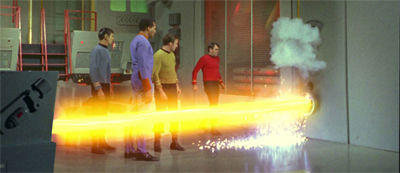Parting is Not Sweet Sorrow
- Debra

- Jun 1, 2018
- 4 min read
Updated: Aug 11, 2023
June 2018

There are times when I must break free from the past in order to create. The impulse, or desire, has, at times, caused more than a few people to speak of me as restless, even impulsive. And yet I must confess that my need to take decisive action, to make a command decision, has always been the result of lengthy contemplation and methodical caution. The élan with which I then make my move seems quite spontaneous and capricious, but the change in direction has been plotted and planned well before it is carefully executed. In fact, to me, it feels a bit boring and anti-climactic, so meticulously have I arranged the steps of the pathway from here to . . . there. My mode and method of living have, of necessity, been in accordance with my need to create. My Muse understands these facets of my being better than I do. My loved ones understand it even more. It is not easy for me to think of myself while at the same time living within my self. I am often too much without an awareness of my gifts, and that deficiency, if you will, has caused me untold vexation and displeasure, even the quiet sadness of knowing I’ve been used by other people. The sadder knowledge is that those individuals used up whatever virtue remained in them.

In those instances, parting from the past has not been sweet sorrow, particularly when I come to realize that I must take leave, not of my senses, but of my present station, to execute the duty of fulfilling my art. My truest self is that of an artist. At times, I must remind myself of that truth because for so many years I went purely on faith that I was gifted with talents to be developed and trained and taught; but I did not dare to think of myself as an artist. So many pretentious people had showered themselves with that appellation that I all but ran from it! While I was fleeing the poseurs, I was blessed by teachers and professors who gave to me lessons of a lifetime. They knew what I did not know: that I was a budding artist. They thought it best not to inform me of their sense of my artistry. Many years later, I realized the totality of their gifts to me, some of which was doing what they had to do for me — without my knowing it.

My discernment of their magnanimity has struck me profoundly; to this day I feel a bond with each of those rare individuals who saw in me what I could not see in myself. They virtuously acted with benevolence, in quiet moments and with silent love. With utter unselfishness, they instinctively and consciously understood my needs as an artist in myriad ways that permitted me to grow. And growth is crucial to any human being, but especially to an artistic soul. My Muse perceived their brilliance. My Muse now directs me in the best paths to take to honor their genius as well as mine. It is with some difficulty that I speak, or write, of my “genius” but I grant myself that liberty because that word, genius, applied to me, is a reflection and an extension of their genius.

I parted from them, one by one, in silence, because I truly could not say good-bye to any of them. Perhaps my refusal to say “farewell” was my gift to them, my way of saying: We shall meet again, in another place and time, through a vastly superior dimension. Parting from those special individuals was not sweet sorrow because a measure within me, My Muse, to be exact, knew that there would be only the joy of creation, the bliss of actualization, the feat of fulfillment known as art. It is therefore in exultant honor of my mentors that I offer these bits and pieces of advice and opinion from two other teachers who continue to deeply influence me and my Muse. Both men were Russian; both were writers of limitless talent, and of great soul.

Anton Pavlovich Chekhov: It's not a matter of old or new forms; a person writes without thinking about any forms; he writes because it flows freely from his soul. One had better not rush, otherwise dung comes out rather than creative work. Write only of what is important and eternal.
If you want to work on your art, work on your life. It is a bad thing if a writer tackles a subject he does not understand.

Vladimir Vladimirovich Nabokov A novelist is, like all mortals, more fully at home on the surface of the present than in the ooze of the past. To a greater or lesser extent there goes on in every person a struggle between two forces: the longing for privacy and the urge to go places; the introversion, interest directed within oneself toward one's own inner life of vigorous thought and fancy; and extroversion, interest directed outward, toward the external world of people and tangible values. The good, the admirable reader identifies himself not with the boy or the girl in the book, but with the mind that conceived and composed that book. The breaking of a wave cannot explain the whole sea.



